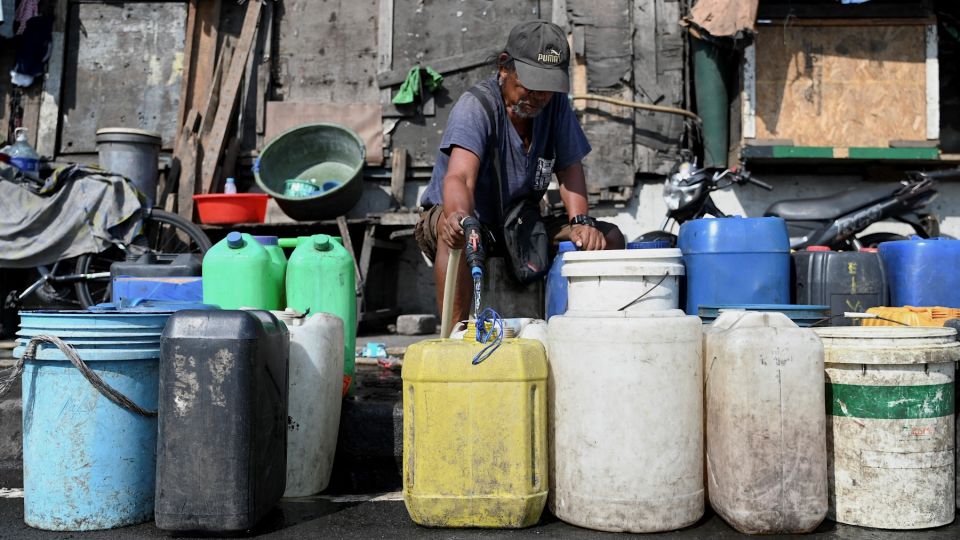November 26, 2025
MANILA – Natural disasters in the Philippines such as typhoons, floods and landslides, whose frequency and intensity are exacerbated by climate change, can disrupt access to water services and cause damage to sanitation infrastructure.
If unaddressed, a new report by Unicef Philippines and the Department of Environment and Natural Resources (DENR) warns that 40 to 80 percent of the country’s water supply could be depleted by 2040 due to climate-related impacts.
Launched on Tuesday, the “Climate Landscape Analysis for Children in the Philippines” report highlights how climate change threatens one of the most vulnerable sectors of the population—children.
READ: Unicef launches tenders for mpox vaccines
It pointed out that extreme weather events, often experienced by the Philippines as one of the most climate-vulnerable countries in the world, can disrupt classes, worsen malnutrition, contaminate water supply, and expose children to exploitation and displacement.
“Climate change is actively exacerbating health risks, creating a triple burden of disease, malnutrition and heat stress,” said Robert Borje, vice chair and executive director of the Climate Change Commission (CCC).
READ: Climate change made Nordic heatwave 2C hotter – study
Speaking during the launch of the study, Borje noted that “water insecurity remains a critical vulnerability” in the Philippines, with only 48 percent of the population having access to safely managed potable water.
“As global temperatures rise, this scarcity is expected to intensify,” he said.
According to the report, most schools in the country lack access to water and sanitation infrastructure such as toilets and handwashing facilities, with 19 percent of students drinking from unimproved water sources or having no access to water at all.
Communities in the Bangsamoro Autonomous Region in Muslim Mindanao (BARMM), as well as in rural, indigenous and geographically isolated and disadvantaged areas or GIDA are most vulnerable to this lack of clean water and sanitation infrastructure, the study said.
It noted that 17.8 percent of households in BARMM still practice open defecation, while another 20 percent rely on unimproved sanitation facilities.
Provinces such as Basilan, Sulu and Tawi-tawi in particular face the “most severe water stress” given how these areas rely on rainfall and diesel-transported water imports because of its geographic location.
Moreover, areas in the Visayas, such as Cebu, Bohol and Panay Island, as well as Luzon, are also experiencing growing competition for water due to urbanization.
The lack of clean water and sanitation infrastructure also make children more prone to illnesses. On top of this, weather disturbances such as typhoons lead to outbreaks of waterborne diseases such as dengue, leptospirosis and malaria.
To improve the country’s water and sanitation sector, Unicef said the government should prioritize the pending act creating a Department of Water or expand the regulatory functions of the Water Resources Management Office under the DENR.
It also called for the development of a capacity support program for local government units (LGUs) and incentives for the clustering of utilities in water-stressed areas, noting that LGUs need support in building technical capacity to address the impacts of climate change.
“Our response must be anchored in intergenerational justice, for it is the moral responsibility of our generation to ensure a healthy and sustainable planet for future generations,” said Borje, adding that the CCC “is committed to advance national climate policy that protects and empowers our children and the youth.”
At the same time, he urged the youth and other stakeholders to “hold us accountable and to lead in your communities” when it comes to translating national plans into localized actions against climate change.


